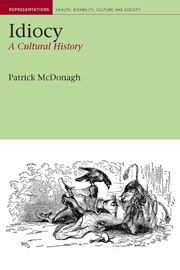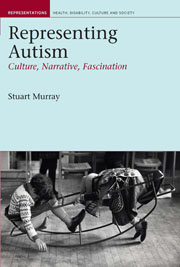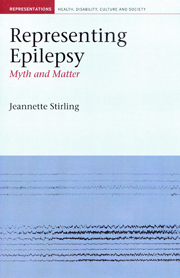3 results in Representations: Health, Disability, Culture and Society

Idiocy
- A Cultural History
-
- Published by:
- Liverpool University Press
- Published online:
- 05 June 2015
- Print publication:
- 01 November 2008
-
- Book
- Export citation

Representing Autism
- Culture, Narrative, Fascination
-
- Published by:
- Liverpool University Press
- Published online:
- 05 June 2015
- Print publication:
- 01 June 2008
-
- Book
- Export citation

Representing Epilepsy
- Myth and Matter
-
- Published by:
- Liverpool University Press
- Published online:
- 05 January 2012
- Print publication:
- 26 April 2010
-
- Book
- Export citation


